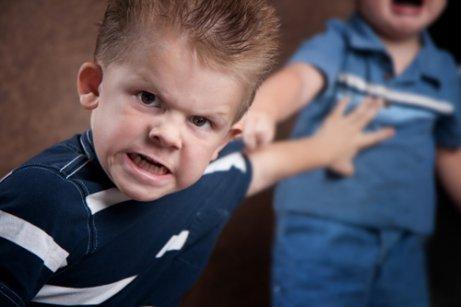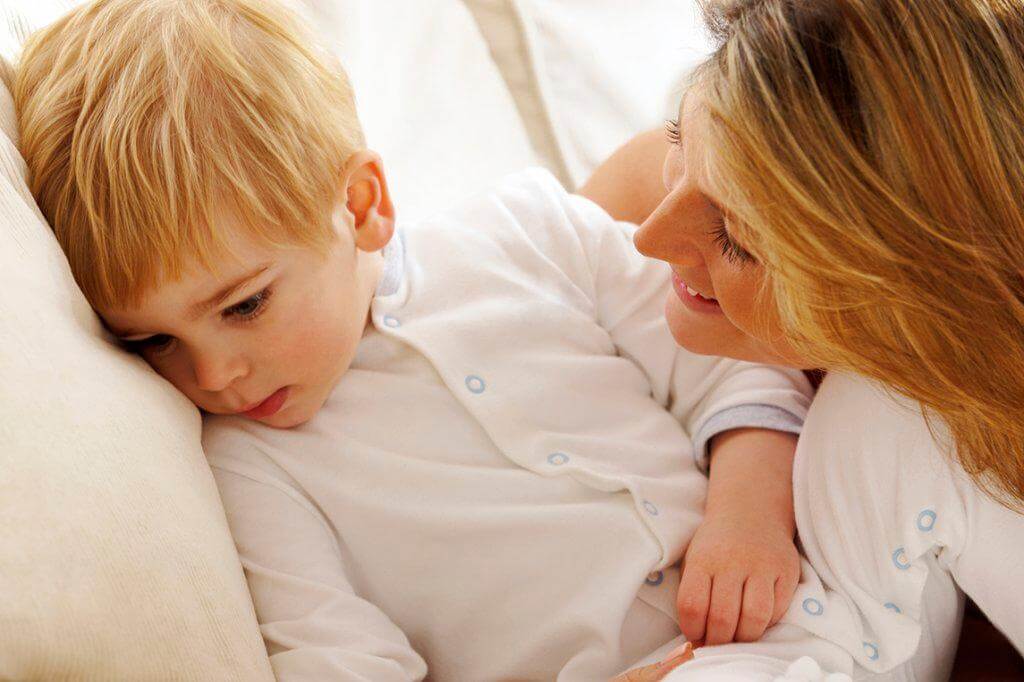What to do When Your Child Misbehaves


Written and verified by the psychologist Bernardo Peña
When your child misbehaves, parents tend to lose their patience and a power struggle ensues.
People often think that children misbehave on a whim, but they’re wrong. Your job as a parent is to identify the reasons why your child misbehaves.
Misbehavior may mean tantrums, anger, or breaking and hitting toys or other objects. Some children pee or poop on themselves, even though they’re already potty trained. Others simply ignore orders, scream, or do naughty things that make adults go crazy.
Why Do Children Misbehave?

- One of the main reasons children do this is to get their parents’ attention. This happens when the child determines that they don’t get the attention they feel they deserve when they behave appropriately. Then, the child misbehaves to get attention from their parents and the adults around them. Unfortunately, then they usually get what they want, because the parents and adults start talking about the child’s behavior, thus turning them into the center of attention.
- Another reason why a child misbehaves is that they feel neglected. It usually happens when, for example, you go shopping and the child tells you they’re tired. Since they get no response, they throw a tantrum. This encourages the child to simply misbehave next time because they know it works and is the perfect way to get attention.
- Another reason for a child misbehaving is jealousy. Maybe the child is jealous of one of their siblings, a friend, and even a parent. The truth is that children discover at a very early age that, when they misbehave, they can manipulate any situation.
- Also, a lack of boundaries or contradictions between the set rules can also be reasons why children misbehave. For example, Mom forbids one thing, but Dad allows it.
Misbehavior is caused by serious behavioral problems such as low frustration tolerance, hyperactivity, poor social skills, and little to no impulse control only in extreme cases. An inappropriate family environment, overprotection, school problems, and abuse are also causes of misbehavior.
We recommend that you read: 6 Exercises To Help Children With Language Difficulties
What to do When a Child Misbehaves
After analyzing the misbehavior and determining its causes, you should analyze how you act when your child misbehaves. Your behavior in the middle of a tantrum can make a problem worse instead of putting it to bed.
-
Be Patient and Understanding

When their children misbehave, parents experience a crisis, become desperate, and end up imposing upon them. Try not to get angry and be gentle, but firm when telling your child how he or she should behave. Losing your temper will only cause a power struggle where both of you will test your boundaries.
See also: Patience and Silence: Virtues of Wise People
-
Don’t be Swayed by What People say
A tantrum in front of others often leads to parents feeling uncomfortable. Often, they end up giving in to the child’s demands to calm them down and thus avoid an awkward situation.
Don’t let what others think affect you. Hugging your child really tight is a great technique. Depending on your child’s age, you can hold their hands lovingly and explain to them that what they’re doing is wrong.
Then, you can just keep on doing what you were doing and ignore the fact that your child is still crying. Drawing your attention away from your child in situations like these will prevent future tantrums.
-
Try Not to Yell at or Belittle Your Child

When a child misbehaves, depending on their age, they may be trying to communicate with you but just don’t know how to. Children learn by example.
If you ask your child not to scream, but you finally lose your cool and screaming at them, you’ll just end up confusing your child. Nor is it a good idea to tell your child that they’re bad or that the other children behave better than them.
-
Reinforce Good Behavior
Most parents don’t praise their children’s good behavior. Phrases like “It’s so great you’re sharing your toys with your sister” or “Thank you for picking up your toys and clothes, you’re such a big help” will make them feel great.
Conclusion
Disciplining a child doesn’t mean controlling them; it simply means helping them maintain their self-control.
It’s best the child does the right thing because they want to and not because they “have” to. If you control them, you end up awakening dissatisfaction and insecurity in your child. Dedication, patience, and love will be the keys to correcting misbehavior.
All cited sources were thoroughly reviewed by our team to ensure their quality, reliability, currency, and validity. The bibliography of this article was considered reliable and of academic or scientific accuracy.
- Hernández, P. L. (2014). Un caso de comportamiento disruptivo infantil: Tratamiento conductual en el ámbito familiar. Revista de Psicología Clínica con niños y adolescentes, 1(2), 117-123.
- Martínez González, C.. (2011). “No puedo con mi hijo” (el niño tirano, modelo de padres, la educación infantil…): Perfil del pediatra ante los nuevos retos en educación. Pediatría Atención Primaria, 13(Supl. 20), 83-89. Recuperado en 22 de enero de 2019, de http://scielo.isciii.es/scielo.php?script=sci_arttext&pid=S1139-76322011000400008&lng=es&tlng=es.
- Rodríguez, M. C. (2010). Factores personales y familiares asociados a los problemas de comportamiento en niños. Estudos de Psicologia, 27(4), 437-447.
- National Health Service. Dealing with child behaviour problems. (2020). Recuperado el 24 de noviembre de 2020. https://www.nhs.uk/conditions/pregnancy-and-baby/dealing-with-difficult-behaviour/
- Raising Children. Encouraging good behaviour: 15 tips. (2020). Recuperado el 24 de noviembre de 2020. https://raisingchildren.net.au/toddlers/behaviour/encouraging-good-behaviour/good-behaviour-tips
This text is provided for informational purposes only and does not replace consultation with a professional. If in doubt, consult your specialist.








